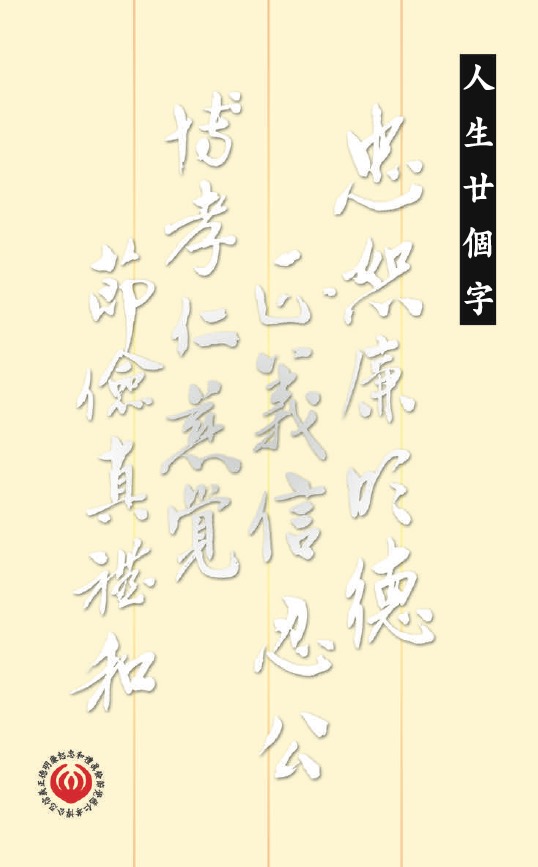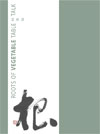忠箴 Loyalty
- 和箴
- HO (Harmony)
| 審一定和 | 應情中節 | 不剛不柔 | 己安人悅 |
| 行不崖異 | 虛衷遜辭 | 和而不流 | 是為得之 |
審一定和 和乃萬物之生氣,生氣之本在心。人心不死,本性不失,性一而已。故定一為和之本源。
O(禮)「一者,心也。人性本一,至和存焉,所應之情不一,故唯精審一以定和。」
應情中節 和從中出,應於情感,則無不中禮節之處。
O(中庸)「喜怒哀樂之未發謂之中,發而皆中節謂之和。」
不剛不柔 己安人悅 純剛是死氣,純柔亦是死氣。凡萬物之生氣,柔中有剛,剛中有柔,所以不剛不柔,乃天地中和之氣。以中和之氣,應於情感,在自己可以心安,在他人可以心悅。
行不崖異 和平之人,做事必不孤僻。
O(莊子)「行不崖異謂之寬。」 謂自立於崖岸以表異也,即孤僻之謂。
虛衷遜辭 心中有若虛空,立辭必然謙遜。
和而不流 是為得之 若徒知和之為貴,而一於和,則流蕩忘反,亦不可行。故君子和而不流,而後得和之美用。
O(中庸)「故君子和而不流,強哉矯。」
In order to be in a state of HO (Harmony), we have to be introspective and examine well into our hearts. No one can be said to be truly in a state of harmony unless one is able to regulate one’s feelings to a reasonable degree (A). If one’s action is neither too rigid nor too elastic, it pleases both one’s own good self and others. A person of harmony never tries to be extraordinary but is always polite and amiable. Being harmonious, while not conforming to others, is to truly achieve the character HO. (B).
NOTES:-
(A) The Doctrine of the Mean: “When there is no stirring of pleasure, anger, sorrow or joy, the mind may be said to be in a state of equilibrium. When these feelings are stirred but are constrained, there ensues what may be called a state of harmony.”
(B) The Doctrine of the Mean: “Therefore, when an honorable person cultivates a friendly harmony without conforming, it is a wonderful thing.”

